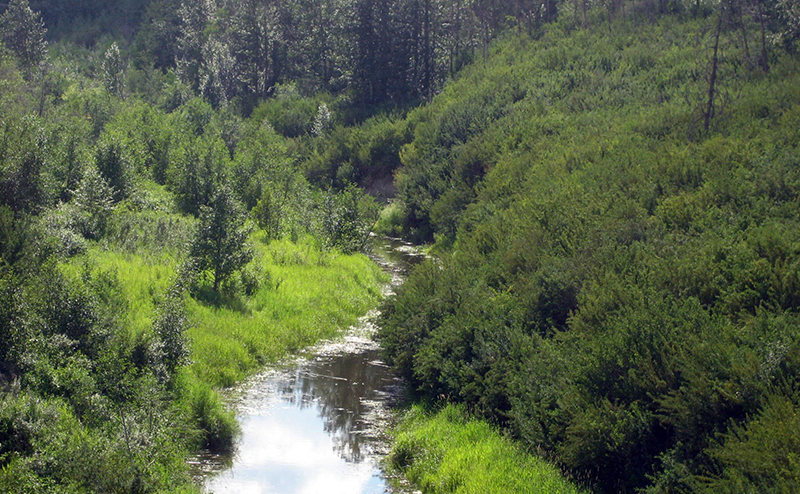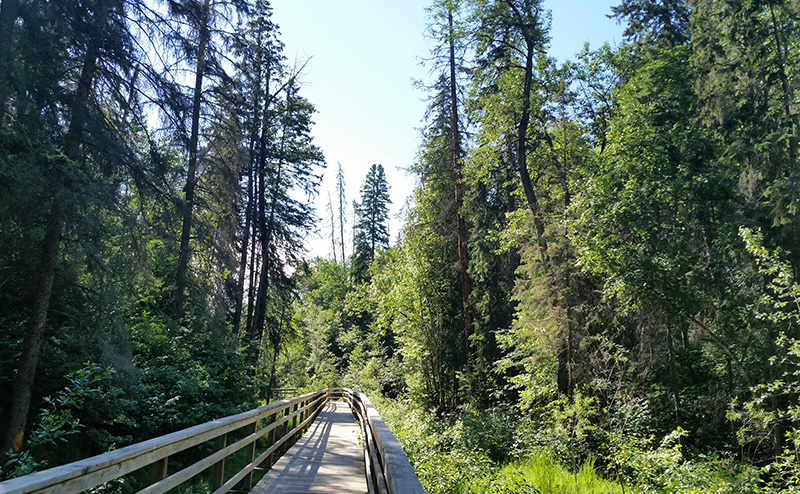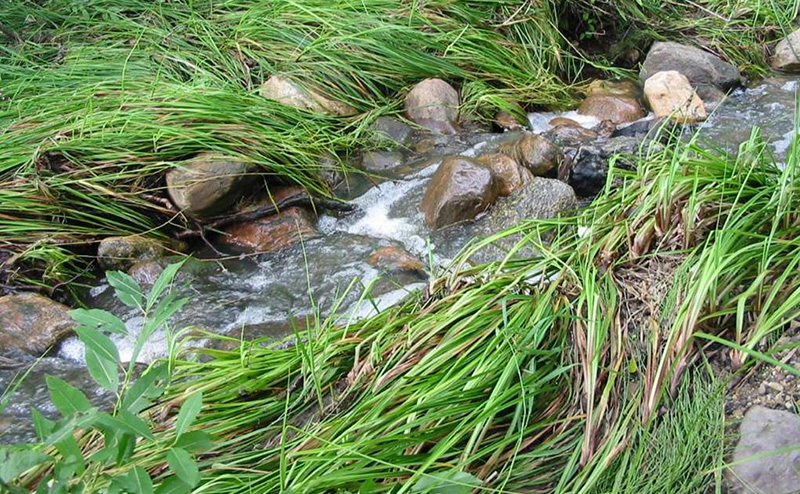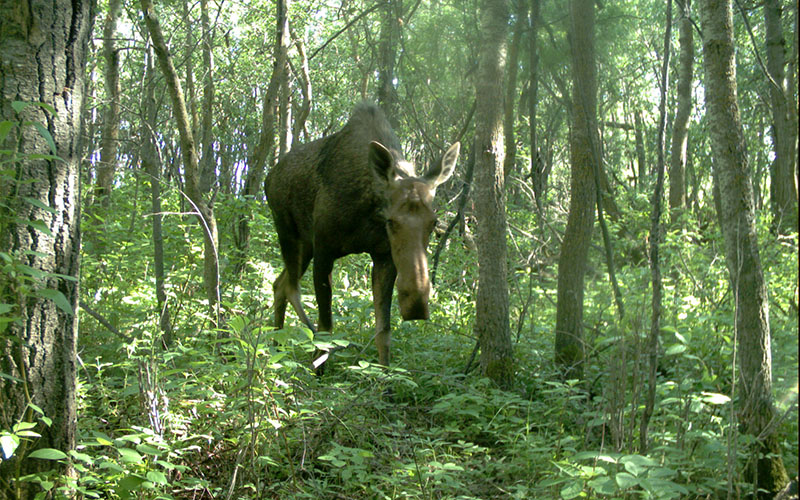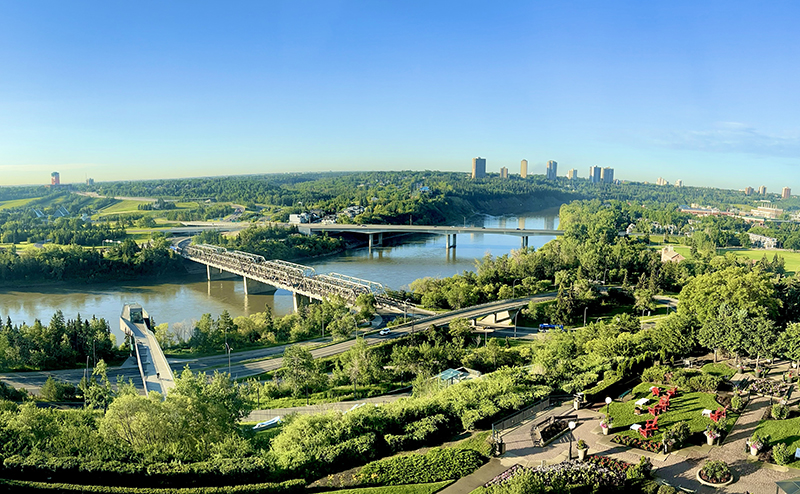
The City of Edmonton's Natural Connections Strategic Plan and public engagement reports.
The North Saskatchewan River Valley is a regional biodiversity core area.
Natural Connections Integrated Conservation Plan is Edmonton's plan for the protection, management and restoration of local natural areas and biodiversity, and the engagement of the community in that effort. The plan applies an outcome-based, ecological network approach to the conservation of Edmonton's natural areas systems. It includes three components: a Strategic Plan, a Biodiversity Action Plan and a Biodiversity Report.
- The Natural Connections Strategic Plan includes guiding principles, goals, system outcomes, strategic directions and strategies.
- The Biodiversity Action Plan outlines roles, responsibilities, timelines and performance indicators.
- The Biodiversity Report includes information about Edmonton's conservation governance system, and an inventory of City and community biodiversity initiatives.
Natural Connections Integrated Conservation Plan supports the City's Natural Area Systems Policy C531.
Edmonton's Ecological Network
A healthy ecological network has several components:
- A wide vegetation corridor along major watercourses, for example the North Saskatchewan River and its tributary watercourses
- Several large natural areas known as core areas, for example Whitemud Ravine, Big Island
- Connectivity for movement of species among the core habitat areas, either through wide, continuous corridors or a series of 'stepping stones', smaller natural areas throughout a more developed area
- A diverse mixture of natural areas throughout the developed parts of the city that can serve as wildlife habitat or connect other, larger natural areas
Edmonton currently has all of the components of an ecological network. With careful planning that encourages the protection of these key elements and the restoration of degraded natural areas and linkages, this network could be sustainable in the long term.
Ecological Network Map - this map shows Edmonton's ecological network, including core areas, stepping stones and linkages.
Plan Development
The "Conserving Edmonton's Natural Areas: A Framework for Urban Conservation" was released in 2011 and outlines the strategies for conserving Edmonton's natural areas and facilitating broader community discussion. This report has two volumes:
Background Information
View the background reports and information about the development of Natural Connections, including the State of Natural Areas Report and the public engagement process.
Natural Connections: An Overview
An overview of the Conservation Plan development process.
Integrated Conservation Plan - Update Report
Provides more detailed information on each of the three components of Plan development.
Visioning Background Summary Report
An overview of 49 conservation plans from around the English-speaking world, highlighting over 500 conservation goals and objectives. This report served as important background information during the development of Edmonton's Conservation Plan.
In 2006, the City completed a State of Natural Areas Report, which provided the scientific basis for Natural Connections. The report was released to Edmontonians to kick-start the public engagement process, which began in late 2006.
In 2006 and 2007, the City carried out an extensive public engagement process to seek community input on the development of the plan.
Natural Connections Public Involvement Plan
Public Involvement Plan developed by the Office of Natural Areas - guided the Office's consultation of the public in advance of and during development of the Strategic Conservation Plan.
Public Engagement Request for Proposals
Request for Proposals for the Public Engagement Process, which was carried out in November/December of 2006. Teleologic Strategic Communications Inc. was awarded the contract.
Natural Connections Inter-departmental Working Group Project Charter
Project charter for the Natural Connections internal working group, which included representation of each of the relevant City departments and contributed to the development of the Strategic Conservation Plan.


